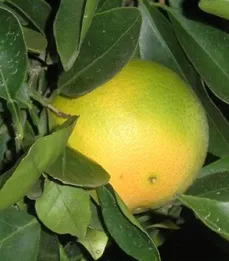“How can you treat a trading partner of over a hundred years like this?” asks Charles Rossouw, owner of Roslé Citrus in Limpopo’s Senwes area, which he represents on the board of the Citrus Growers’ Association, of the new requirement that oranges for Europe now have to be precooled and shipped under prescribed temperatures.
The majority of oranges from Limpopo, where 60% of South Africa’s oranges are grown, used to be loaded at ambient temperature for Europe, and South Africa sent 40% of its oranges just to Europe in 2020, counter-seasonal to Europe’s own production which is already protected by tariffs on South African citrus from mid-October onwards.
The new protocol will affect a vast amount of fruit and the impact of the protocol will be severe and unbelievably dramatic, Charles says.
“We don’t know if we will have the handling capacity to comply with the protocol. With no lead time to prepare, coming right in our peak weeks, and with the details communicated to us very late, leaving us no time to build capacity at cold stores.”
He explains: “Fruit will stand in cold rooms for a week longer but meantime cold rooms are already under massive pressure and completely full. A bottleneck will develop, and fewer pallets will get through the system and farmers won’t be able to get all of their fruit through the harbour,” he warns. “It’s a completely draconian protocol and it’s vicious to dump it on us like an ice bath, right in our peak weeks.”
“It’s 100% certain some farms will go out of business”It needlessly puts the survival of Southern African citrus farms at risk and what the European Commission chooses not to think about, he says, is that the rural economies where citrus is grown in South Africa are totally dependent on fruit exports.
When farms have to retrench workers, or go under, thousands of people will lose their means of income and that, Charles declares, is a question not just of economics, but also of ethics.
“It’s a hundred percent certain that some farms will go out of business, and people will lose their jobs because of this. Farms are under tremendous cost pressure and many are already struggling to break even.”
The protocol will equally affect Zimbabwe’s recovering citrus industry, as well as those of other African countries like Eswatini (formerly Swaziland). “How do you square the need for poverty alleviation and food security in Africa with this decision?”
“And then there’s the environmental impact, when we’re supposed to be moving to lower carbon usage in our production systems. It is going to require more electricity to bring the fruit down to the required temperature and to cool on the vessels.”
Haste to reach decision leaves crucial protocol details unclarified
Crucial parts of the protocol remain, in the words of a KwaZulu-Natal cold store manager, a “million-dollar question”: for instance, will the precool temperature of 5°C this season be lowered even further, to 0°C and 2°C next year, as stipulated in the regulations for the two shipping regimes published last month in the EU’s Official Journal?
“The goal posts seem to be continually shifting,” he says, asserting that politicians hijacked the debate from scientists who had initially rejected these same amendments to the protocol. The Citrus Growers’ Association has described how from the moment the Spanish government involved itself in the decision-making process, the new protocol was rushed through and adopted in a single day.
Forced cooling will be disincentive to softer spray programmes South African citrus and other fruit farms have followed a False Codling Moth Management System that consists of risk-mitigating checks and balances throughout the year in the orchard and in the packhouse.
South African citrus and other fruit farms have followed a False Codling Moth Management System that consists of risk-mitigating checks and balances throughout the year in the orchard and in the packhouse.
He points out that the Southern African industry fully accepts that false codling moth is a quarantine pest for which there is zero tolerance in the EU, and false codling moth interceptions had in fact been coming down every year.
“Our management of false codling moth is one hundred percent under control. But now farmers could ask themselves why they have bothered following softer, more biological practices when it now has to be brought down to these low temperatures anyway? The new protocol will be a disincentive to follow more biological practices, which is another negative impact on the environment following from this.”
But that is not what this is about, the industry maintains: a country like Eswatini (formerly Swaziland) with a clean record of FCM interceptions, is now similarly bound to mandatory precooling.
Charles speaks for the whole industry (and some sympathetic EU member states) when he calls the decision “protectionism of the highest order”.
“It’s very important to keep Europe open for South African citrus, not only for its own sake but for the wellbeing of the country’s other citrus markets. South Africa will contest the decision, as we must, but it could take a very long time to get an answer (if we ever get an answer), but we will make sure we comply this season. We don’t have much of a choice.”
